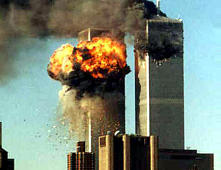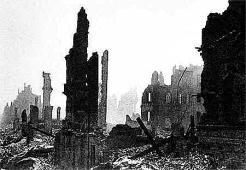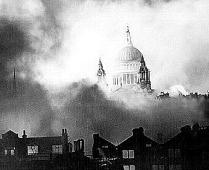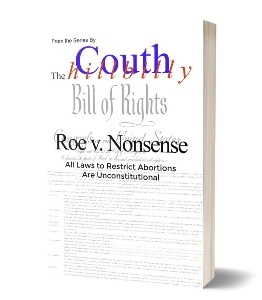 Everyone knows what terrorism is, right? Obviously not.
Everyone knows what terrorism is, right? Obviously not.
I watched a couple of news shows. One has an interview with Senator John McCain. The following show had an interview with another Republican.
Both are criticizing the president, subsequent to the second debate. Both are referring to the killings in Libya as acts of terrorism. Both are ignorant.
The president once used the phrase ‘act of terror.’ Another time he didn’t. Other members of the administration spoke of it. Sometimes it was called terror, sometimes not.
Admittedly, sometimes it was said to have resulted from what began as a demonstration against that idiotic video. While the event in Benghazi was not related to the video, neither was it an act of terrorism. The president, his administration, his critics and the talking heads on television all got it wrong.
We all know that there have been wars between countries. There have been civil wars inside of countries. There have been wars between forces of relatively equal strength. There have been wars between parties of unequal strength. Whatever, we have a pretty good grasp of what constitutes a conventional war.
Then we have guerrilla wars. These conflicts are between forces of unequal strength. Down at this level, they are usually referred to by the military as asymmetrical wars. If the guerrillas experience sufficient success, they can graduate to taking on their opponent in more conventional battles, as happened near the end of the war in Vietnam.
Down at the bottom of organized violent conflicts we have terrorism. The foregoing types of conflicts are generally well understood. Terrorism is not. This is what is so widely misunderstood, misconstrued, misapprehended. The misunderstanding has led to the government and its critics arguing about a ‘War on Terror.’
There is no such thing. There can be no such thing. There may be strategies and actions aimed at terrorists but the nature of the beast does not lend itself to being the target of a war.
Terrorist tactics are the only option of a very weak force. The adoption of the tactics of terrorism is an admission of weakness. Because of that weakness, they recognize that they have no chance of success in either a conventional- or guerrilla-style conflict.
Terror is defined as, “An overwhelming feeling of fear and anxiety.” Terrorism is not intended to defeat enemy forces. Its intent is to instill terror. Such a weak force cannot cause the forces of the government to feel overwhelming fear. There is no concern on the part of the government that such a weak force can best it in battle between the two.
So, if terrorism is intent upon instilling terror and the government does not feel terror, just who is supposed to be the one experiencing that feeling of terror? The populace.
Terrorism is directed at the general public. The Twin Towers were not a military target. The events of 9-11 were directed against civilians. You remember the initial result. Across the country people experienced, “An overwhelming feeling of fear and anxiety.”
They were wondering what next, where next. They were trepidacious about getting on an airplane. They knew that any popular landmark or any event that attracted crowds was a possible target. It wasn’t enough to keep Americans away from football games but they did recognize the possibility.
I cannot think of a single terrorist group that has been successful in bringing down a government. So, just what is the goal of terrorists, anyway. The fact that they are unlikely to succeed apparently is no deterrent. They probably are ignorant of the ultimate futility of their efforts.
As they do realize that they cannot overwhelm government forces, their goal is to destabilize the government. The object is to so terrorize the population that the government cannot function; that its efforts are directed at regaining the stability necessary to rule.
How to bring about sufficient instability? Target the public. What is the best way to instill terror amongst the public? The people have to realize that they, not the government are the immediate target. The targets must be unpredictable. They must be random. You must not feel safe anywhere in public. The incident in Libya was not terrorism. Its target was a government facility and government personnel.
Also, the incident in Benghazi was not random. It was on a day that people would expect a problem. It was the anniversary of 9-11. It is more productive of terror to just let people worry by expectation, then, when the time passes without incident, catch them off-guard,
What happened did not constitute an act of terrorism. It appears that the group responsible is too small and weak to actually represent a threat of guerrilla warfare. Their selection of a guerrilla target and tactic merely indicates that they have an opinion of themselves as being more powerful than they actually are. Or, it is very possible they are too ignorant to adopt the appropriate methods.

That is the simple perspective. It’s correct but there is a wrinkle that has been introduced. I just read that last sentence and it might have given the impression that there has been a new development. It’s not new.
Here you see the aftermath of the saturation bombing of Dresden during WWII. Dresden was hardly a military target. More than 10,000 civilians were killed. While there may have been a errant bomb or two that landed near a military target, the real target was obvious from the destruction of the city’s center.
Was that terrorism? Although the Army Air Corps, and its successor, the US Air Force, denied it, it was intentionally an act or terror. Aimed at civilians and being a random, unexpected target, it qualifies.
What was the reason for terrorist tactics in the midst of a conventional war? It was the usual goal of terrorism. To terrorize the population to weaken the government. It didn’t work because the people so feared the government, the government was Hitler and Hitler was demented; incapable of being deterred.

Was Dresden the first terrorist act during a conventional war? Did you forget the Battle of Britain? The bombing of London received far more publicity. That may be because it was against a friend, rather than an enemy.
Adolph thought his Luftwaffe could give him a cheap quick victory. It didn’t. He expected to break the spirit of the English. It should have surprised no one that people will not take kindly to being attacked. Though a small country, they had been the world’s greatest empire and maintained a residual pride. With their backs against the wall, they became indomitable of spirit.

Then there was Hiroshima. It was also an act of terror during a conventional war. But, it worked, didn’t it?
Yes, but there were special considerations; considerations that are unlikely to factor in to very many situations. The Japanese people would have persisted to the last man. Why didn’t they?
The military had replaced the civilian leadership and ignored the emperor. Actually, the emperor had not asserted himself. He had been willing to acquiesce.
The atomic bomb helped change that. The bomb introduced an entirely new world. It made believable the invasion of the sacred land. It portended the total destruction of the Japanese people. As the god of his people, Hirohito was not inclined to oversee its elimination. He stepped in.
While the military had not evinced too much reverence of their god to that point, his public proclamation was not something they could realistically oppose. To that point they had commanded the loyalty of the people only in his name. That is not an example of a weaker force overcoming a government through the use of terrorism. The rule stands.

London was not the first target. I’m old enough to remember a fellow by the name of Genghis Khan. His primary tactic was to obliterate any town that opposed him. Once the word got out, towns emptied out in advance of his arrival.
Yes, there were lots of cities and towns targeted by terrorist tactics long before London. And Genghis wasn’t the first.
It would probably be a good idea to present a dictionary and a shelf of history books to each of those politicians, pundits and what passes these days for journalists. Those selecting terrorism as their career might benefit from a dose of reality. Their ego would likely overwhelm their reason anyway but someone needs to let them know that success is not in the cards.
 .
.
.




very interesting, thanks.
Wonderful, what a web site it is! This web site gives helpful facts to us, keep
it up.
Hello there! I could have sworn I’ve visited this blog before but after browsing through
some of the articles I realized it’s new to me. Anyways,
I’m certainly happy I stumbled upon it and I’ll be book-marking it
and checking back often!
Thank you. I value all visitors but especially return visitors.
Such compliments make me blush.
Hi there, i read your blog from time to time and i
own a similar one and i was just curious if you get a lot
of spam remarks? If so how do you prevent it, any plugin or anything you can advise?
I get so much lately it’s driving me crazy so any support is
very much appreciated.
Spam is a serious problem. There are too many people whose lives are so sad and empty that they find pleasure in being nothing more than a nuisance to people with lives. I had a problem with people using my site for sending out spam. My ISP gave notice they were going to shut my site down. At their suggestion I blocked all comments for awhile. Then I allowed them only on posts that were less than 30 days old. I recently eliminated restrictions. There are plugins which claim to help. They may but the procedures I used are built… Read more »
Hello There. I discovered your weblog the use of msn. This is a really neatly written article.
I’ll be sure to bookmark it and return to read extra of your useful info.
Thank you for the post. I’ll certainly comeback.
Hello, I enjoy reading through your post. I like to
write a little comment to support you.
Hello there! Do you use Twitter? I’d like to follow you if
that would be okay. I’m undoubtedly enjoying your
blog and look forward to new posts.
Thanks for the interest. Although I am on Facebook (I was kind of forced into it) I only check it every month or two. I have been too busy to keep up with social media. I have 2 more books being published in a couple of weeks and am starting a podcast in a couple of months.